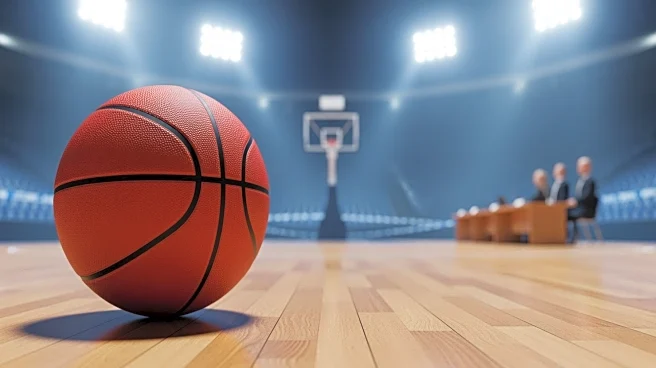What's Happening?
The Los Angeles Lakers are facing a challenging start to their season as they will be without their superstar forward, LeBron James, due to sciatica. This absence places significant pressure on other team members, particularly Austin Reaves, who is expected to step up alongside Luka Doncic. Reaves, now in his fifth NBA season, has shown consistent improvement, but former NBA guard Evan Turner has expressed skepticism about Reaves' ability to be a key player on a championship team. Turner, speaking on the 'Open Floor Podcast,' suggested that Reaves cannot be the third-best player if the Lakers aim for championship aspirations, indicating the need for a 'secret weapon' or a 'sixth man killer.' Chris Mannix, also on the podcast, raised concerns about Reaves' fit with Doncic, given Doncic's ball-handling dominance.
Why It's Important?
The scrutiny on Austin Reaves is significant as he is poised to become an unrestricted free agent next summer, potentially commanding a substantial salary if he performs well. His performance this season could impact his market value and the Lakers' strategy moving forward. The Lakers' ability to compete for a championship without LeBron James early in the season will depend heavily on Reaves' performance and his synergy with Luka Doncic. This situation highlights the pressures faced by emerging players in the NBA and the strategic decisions teams must make regarding player roles and contracts.
What's Next?
The Lakers will begin their season on October 21 against the Golden State Warriors, providing the first opportunity to assess Reaves' performance in a leading role. The outcome of this season will be crucial for Reaves as he approaches free agency, and it will also influence the Lakers' decisions regarding team composition and championship strategies. Observers will be watching closely to see if Reaves can rise to the challenge and prove himself as a pivotal player for the Lakers.
Beyond the Headlines
The situation with Austin Reaves underscores broader themes in professional sports, such as the pressure on athletes to perform at high levels and the impact of injuries on team dynamics. It also highlights the importance of strategic planning in sports management, where teams must balance immediate performance needs with long-term player development and financial considerations.









